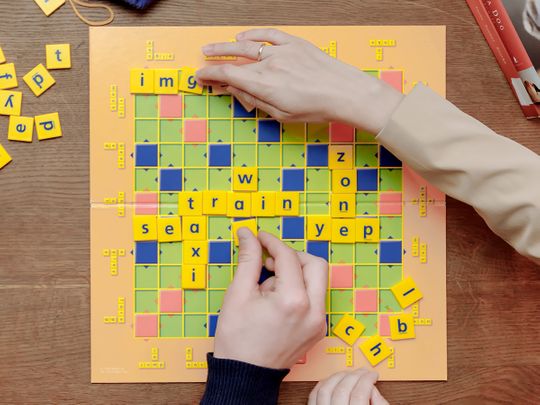
Did you know? About a 1,000 words are added to the English language every year. Every time we pick up on internet lingo from Twitter and deposit it in the comments of TikTok, we are effectively growing the language to the point of it being recorded in dictionaries.
Click start to play today’s Word Search, and spy different branches of study, from linguistics to astronomy.
Robust online communication is, in fact, a treasure trove of something called an ‘open’ class of words – think nouns and verbs. Morphology, the study of words and their structure, tells us that grammatical units, such as ‘the’, ‘is’ and ‘under’, don’t have the luxury of growing in numbers. They remain stagnant through time and hence are called closed.
So with the steady influx of new terms, have you ever wondered about how these open-class words are born? Morphologists or linguists list several formation processes that create new words. Here, we take a look at select five:
1. Back-formation
The verb ‘edit’ comes from the noun ‘editor’, and this is strange because the usual linguistic pattern dictates that it should have been the other way round. This is known as back-formation, where an already existing word loses a prefix or a suffix (the bits that come in the front or at the end of a word) to form a new word. It further gave us burgle from burglar, sculpt from sculptor and babysit from babysitter.
2. Clipping
After spending hours bingeing a rom-com, we become avid ‘shippers’ of a couple. The word in question comes from the verb ‘to ship’ people together, and no, not in the nautical sense either. What we’re putting to use here is the clipped form of relationship, so you are simply very hopeful about two leads getting into one. We also get pub from public house, cell phone from cellular phone and flu from influenza.
3. Borrowing
The English language is known for being a serial borrower of foreign words. The trend began even before the settlement of Anglo-Saxons in Britain in the fifth century. The Vikings gave English speakers ‘egg’ and ‘sky’; the Romans lent them ‘school’ and ‘purple’; and the French leased ‘niche’ and ‘pavilion’.
Fast forward to present day, we even use Hindi to speak about someone wearing bangles, living in a bungalow or wearing their favourite set of pyjamas.
4. Blending
Hypothetically, if you were to put ‘alpha’ and ‘beta’ in a blender, you would get the word ‘alphabet’. We’ve just made a blend, where two standalone words break off and fuse together to form a completely new word with a different meaning. Have another one: A combination of Bombay and Hollywood is the name of Indian cinema’s billion-dollar industry, Bollywood.
5. Coinage
When people go out to brunch (note, this is a blend) and dig into a yummy sandwich, little do they know that the meal in their hands was supposedly named after the 4th Earl of Sandwich in 1762. Legend has it that John Montague asked for his roast beef to be served between two slices of bread, just so he could play his cards and eat without silverware.
Sandwich is, therefore, an eponym – a type of coinage. This also happens every time a product becomes so popular with the public that the brand name catches on as a general term; case in point: hoover, google, aspirin and band-aid.
Which word formation process surprised you the most? Play today’s Word Search and let us know at games@gulfnews.com.






